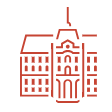Detailed introduction of University of Ljubljana:
Introduction
The University of Ljubljana is the oldest and largest institution of higher education and research in Slovenia. It is located in the center of the capital Ljubljana. It has advanced educational facilities and students can study various courses from undergraduate to doctoral degrees. The academic qualifications are recognized by countries all over the world.
Overview
Students and Faculty: There are about 40,000 undergraduate and postgraduate students, and about 6,000 higher education teachers, researchers, assistants and administrative staff.
Courses: There are more than 150 undergraduate majors, more than 190 master's majors and 21 doctoral majors.
History and Establishment
The University of Ljubljana was established in 1919, but higher education in this area of Slovenia can be traced back to the 17th century, when there was a higher education college established by the Jesuits. In 1810, a university was established in Ljubljana under the central school system of the French Illyria Province. It was later dissolved in 1813 when Austria resumed territorial control, and its school buildings were converted into the Royal Lycian College. In the second half of the 19th century, Slovenes began to call for the establishment of a Slovenian-speaking university. In 1918, with the establishment of the Kingdom of Slovenia, Croatia and Serbia, the establishment of the University of Ljubljana became possible. The relevant bill was officially passed on July 2, 1919. The first professors were appointed in September of the same year, and classes began on December 3.
School Strength
Academic Ranking: Ranked in the top 500 in the Academic Ranking of World Universities (ARWU), 416th in the Center for World University Rankings (CWUR), 801-1000 in the Times Higher Education Ranking, and 591-600 in the QS Ranking.
Subject Accreditation: The School of Economics is a member of the China-Europe Business School Alliance and won the most important "Triple Crown" of global business schools in August 2016. Accreditation (AMBA, EQUIS, AACSB).
International Exchange: Cooperating with many overseas universities to carry out interdisciplinary and multidisciplinary research, attaching great importance to international exchanges of students and teachers, and actively participating in international partnerships. About 3,000 international students study here each year, accounting for about 8% of the total number of students.
Institutional Nature
The University of Ljubljana is a national comprehensive university.
Educational Philosophy
The University of Ljubljana focuses on cultivating students' comprehensive qualities and professional abilities, and is committed to keeping the development of various projects in sync with the latest developments in art, science and technology at home and abroad. Through high-quality social and natural science and technology research courses, it provides students with a solid knowledge foundation and a broad development vision, and cultivates students' innovative thinking and practical ability to adapt to the ever-changing social needs.
Key laboratories and disciplines
Key laboratories: The school has a number of advanced laboratories in the fields of natural sciences, engineering technology, such as chemistry and chemical engineering, computer and information science, etc., which provide strong support for scientific research and teaching, but the specific key laboratories are not clearly listed one by one.
Key disciplines: Social sciences, natural sciences, medicine and other disciplines are ranked first in Slovenia. Its advantageous majors include administration, architecture, art, biological sciences, chemistry and chemical engineering, civil engineering and geodesy, computer and information science, economics, education and learning, electrical engineering, law, maritime research and transportation, mathematics and physics, civil engineering, medicine, natural sciences and engineering, pharmacy, social sciences, social work, sports, theology, veterinary medicine, health sciences, etc.
Faculty
The University of Ljubljana has 23 academic colleges and 3 art colleges, as follows:
Academic colleges: College of Bioengineering, College of Economics, College of Architecture, College of Social Sciences, College of Electrical Engineering, College of Pharmacy, College of Civil Engineering, College of Chemical Engineering, College of Mathematics and Physics, College of Maritime Transport, College of Information Science and Technology, College of Social Work, College of Mechanics, College of Physical Education, College of Administration, College of Philosophy, College of Medicine, College of Natural Sciences and Technology, College of Education, College of Law, College of Veterinary Medicine, College of Health, etc.
Arts Colleges: College of Music, College of Drama, Radio, Film and Television, College of Fine Arts and Design.
Rankings
Ranked in the top 500 of the Academic Ranking of World Universities (ARWU), 416th in the Center for World University Rankings (CWUR), 801-1000 in the Times Higher Education Rankings, and 591-600 in the QS Rankings. Ranked 33rd in the QS Emerging Europe and Central Asia Rankings in 2022.
Expenses
Undergraduate tuition fees are approximately 2,500-4,000 euros per academic year, master's tuition fees are approximately 3,000-5,000 euros per academic year, and doctoral tuition fees are approximately 4,000-6,000 euros per academic year. The specific fees vary depending on the major.
Campus Environment
Geographic location: The main campus is located in the center of Ljubljana, and some newer buildings are built in the suburbs of Ljubljana, making the university and its students ubiquitous in the city.
Teaching Facilities: The on-campus educational facilities are advanced and developed, with modern teaching buildings, libraries, laboratories, etc., providing students with good learning and research conditions.
-
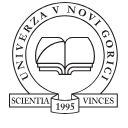
University of Nova Gorica
-
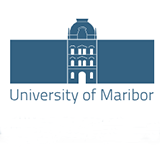
University of Maribor
-

School of Advanced Social Studies
-
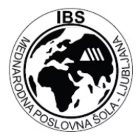
IBS International Business School Ljubljana
-
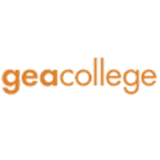
GEA College
-

International School for Social and Business Studies
-

University of Novo mesto
-
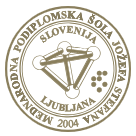
Jozef Stefan International Postgraduate School
-
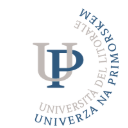
University of Primorska
-
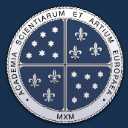
Alma Mater Europaea
-

Mesoamerican University
-

Istmo University
-

Mariano Galvez University of Guatemala
-

Regional University of Guatemala
-

Galileo University
-

Francisco Marroquín University
-

Rafael Landívar University
-

University of the Valley of Guatemala
-

University of San Carlos of Guatemala
-

Technological Institute of Tlaxcala Plateau
-

Golfo University
-

Technological University of South Sonora
-

Technological University of Huejotzingo
-

Tizimín Institute of Technology
-

Chilpancingo Institute of Technology

